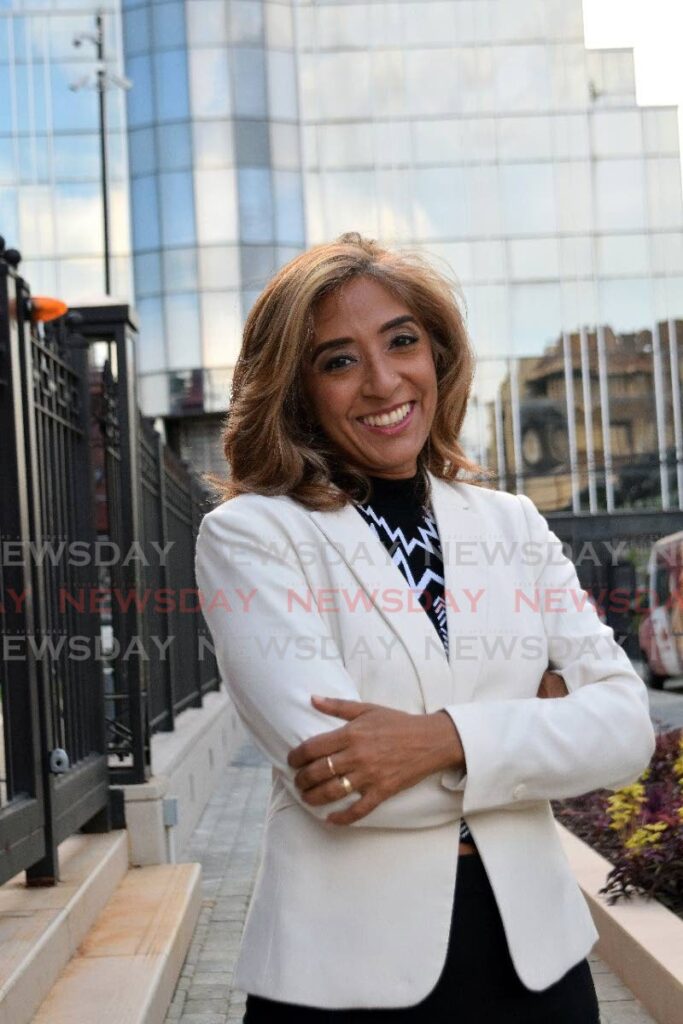Into a brave new world

DR GABRIELLE JAMELA HOSEIN
NEARLY anyone writing a journal entry or documenting life in TT this week would record the beginning of the school term. It’s the first September since 2019 that children and adolescents are starting class in person. Tens of thousands, who survived widely unequitable and disparate experiences of the pandemic, entered their new school year. There was anxiety, but also anticipation and relief.
Children are coming together from the most unequal conditions in decades, depending on whether they had internet and device access, whether there were conditions of unemployment, ill-health and violence in their homes or whether they even spent time with other children and playing outside.
Though imperfect, schools can again be the great equaliser of opportunity as both working class and wealthy sit at desks in some of the same classrooms.
Ziya started secondary school looking small, small in her slightly big school uniform bought, as parents do, to last the school year. I thought about the lessons I wanted her to learn as I watched her walk for the first time into her school, feeling excited and being brave.
First, be kind. Second, be yourself. Third, try every opportunity. Fourth, don’t give up when it gets really hard. Five, have fun. With children, keep it simple. Too much talking and they stop paying attention. My mother felt compelled to give advice in Latin, calling to tell Zi to
carpe diem. Essentially, seize each day.
Adolescence, after all, is a journey of transitions and discovery, defined by building reciprocal peer relationships and tough but rewarding preparation for early adulthood. It can be a minefield for the shy and socially awkward, but also a time for laughter and exuberant peer culture.
At UWI St Augustine, all three years of undergraduate students newly converged on the campus. This is unprecedented. It’s fascinating to think of campus life as fresh to an entire student body now able to gather again, as so many young people should. As other Caribbean countries opened much earlier, from pre-school to graduate school, this is a TT-specific reality.
Childhood changed over this time. The pandemic increased digital mediation exponentially, increasing children’s connectivity over Roblox, Discord, Snapchat, Minecraft and other apps and platforms at earlier ages. There are hardly online and offline worlds for those under 20. They are living across both and each is creating the interactions and selves in the other.
Parents of pre-teens and teenagers will be familiar with the new task of setting rules for their phones. Pre-pandemic, getting a phone in later adolescence was a privilege. Now, children as young as ten have their own phones and are in contact with each other through WhatsApp.
Parents say it’s for safety, but it’s another doorway to the internet, with all of its dangers and risks. I could write a whole column on parents’ rules for phones, from the time at night when they must be put down to whether children can sleep with them in their rooms to how much parents monitor what their teen is saying and viewing.
After two years on devices, children are afraid they won’t make friends or be part of peer groups if they can’t communicate digitally. More than ever before, they now have phones before they have the emotional maturity and capacity to responsibly manage how distracting and addictive they can be. It’s an historic moment for anthropologists examining post-pandemic, digitally-penetrated childhood and adolescence in small, modern societies.
It’s also important to record this moment, and the preparation parents put into it, as well as the emotions whole families experience, because we can get lost in understanding public life through headlines that focus on state and governance.
Yet, the majority of people’s daily lives are consumed with the momentous trivialities of managing their families and homes, affording living costs, beating traffic and ushering children through education and extra-curricular activities. These don’t make headlines, but they matter most in our day-to-day.
Additionally, CSEC and CAPE results were announced this week, with social media platforms alive with congratulations to both parents and students. As always, we must also think of those now left without a clear academic path.
No diarist would let this week pass without a focus on school: new beginnings, hard-earned successes, persistent inequalities, remedial and psychological challenges, teachers' realities, and parenting conversations.
A massive population, with their nervous and joyful hearts in their crisp school uniforms, finally walked away from us and into their new classrooms on a much-awaited, post-pandemic September morning.
Diary of a mothering worker
Entry 478
motheringworker@gmail.com


Comments
"Into a brave new world"